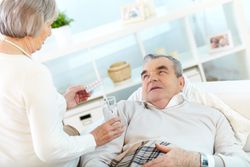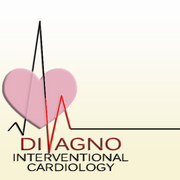How to Help When Someone Has Heart Attack Symptoms

Whether you or someone else experiences heart attack symptoms, it’s natural to become flooded with feelings of fear and panic. Pushing those emotions aside and acting quickly could reduce the risk of full cardiac arrest and death. Although calling for emergency medical assistance is the first step you should take, the following measures can alleviate discomfort while waiting for help to arrive.
What to Do When Heart Attack Symptoms Strike
1. Keep the Person Comfortable
A heart attack can make it difficult to breathe and sends shooting pains to various areas of the upper body. To ease discomfort, loosen tight clothing to aid breathing. Lying down could make it harder to breathe, too, so it’s best to remain in a seated position. Having the head and shoulders supported could provide some pain relief.
2. Administer Aspirin or Nitroglycerin
 If you or a loved one is at home while experiencing heart attack symptoms, the 9-1-1 dispatcher might recommend taking one adult strength or two to four tablets of low-dose aspirin. This common pain reliever could make the symptoms less severe, as it slows blood clotting that brings on heart attacks. If you have nitroglycerin from past heart attacks, take the recommended dosage prescribed by your doctor. The medication opens up arteries to take pressure off the heart.
If you or a loved one is at home while experiencing heart attack symptoms, the 9-1-1 dispatcher might recommend taking one adult strength or two to four tablets of low-dose aspirin. This common pain reliever could make the symptoms less severe, as it slows blood clotting that brings on heart attacks. If you have nitroglycerin from past heart attacks, take the recommended dosage prescribed by your doctor. The medication opens up arteries to take pressure off the heart.
3. Perform CPR
If the person having a heart attack is unresponsive, the emergency medical dispatcher might instruct you to perform CPR or chest compressions. If you haven’t received proper training, they will guide you through the steps over the phone. Administering 100 to 120 chest compressions per minute will ensure oxygenated blood keeps moving to organs until help can arrive.
Monitoring heart health reduces the risk of life-threatening situations, including heart attack symptoms. From cardiac screenings to echocardiograms, the physicians at DiVagno Interventional Cardiology, MD, PA in Rochelle Park, NJ, provide the necessary services to identify medical conditions and determine the best treatments to improve patients’ health. To learn more about the services these Bergen County-based heart doctors offer, call (201) 845-3535 or visit them online.
About the Business


